当前热文:雅思听力 | 每天精听6分钟——United against food waste
雅思听力 | 每天精听6分钟——United against food waste
 (相关资料图)
(相关资料图)
NeilHello. This is 6 Minute English from BBC Learning English. I'm Neil.SamAnd I'm Sam.NeilDoes this situation sound familiar to you, Sam? You reach into the kitchen refrigerator looking for something to eat, only to find a brown lettuce, a sad-looking cucumber, and some two-week old fish, all past its use-by date - the date printed on the food container showing how long it is safe to eat.SamOh, I'm guilty of wasting food, Neil - me and many others. According to the UN, one third of the food we grow ends up in the rubbish bin. And it's not just food that's wasted - it's also the resources used to produce that food, things like water, land and transport.NeilIn this programme, we'll be talking about food waste. We'll meet the people trying to stop us from throwing good food away, and, as usual, we'll be learning some new vocabulary as well.
SamHere in the UK, big supermarkets import food from abroad for customers to enjoy all year round. Summer fruit like strawberries and mangos are flown in from tropical countries and sold in winter, increasing carbon emissions as well as waste.
NeilYes, that's why you hear the phrase, 'eat local, eat seasonal' to encourage people to buy and eat food which has been grown in their local area, at that time of year. So, Sam, my question is - which of the following foods can be grown in Britain throughout the year? Is it:a) strawberries?b) kale? or,c) rhubarb?
SamHmmm, it's definitely not strawberries 'cos they only grow in summer, so I'll say b) kale.
NeilOK, I'll reveal the answer later. We've talked about supermarkets in Britain, but food waste is happening all over the world. In Puerto Rico, too, most people shop in supermarkets, making it difficult for farmers to choose what to sell, and how much to charge for their fruit and vegetables.
SamJosefina Arcay is a farmer who wanted to make it easier for customers to buy local food. She started an online shop to connect shoppers with farmers directly, without the supermarkets. Here Josefina explains her project to Jo Mathys, reporter for BBC World Service Programme, People Fixing The World.
Jo MathysSo Josefina, that's the farmer who we heard earlier growing those giant avocados, she used to have to sell her crops to these kind of middlemen.
Josefina ArcayWe had a lot of… I don't know how you call carreros... it's just people that have a big truck and they will just come by, and they will say, 'What do you have? Ohhh… that's too expensive! Wooh… very expensive! I want it half that price'. So I didn't have any way of controlling how I was going to sell - it just depended on these people coming.
Jo MathysAnd a lot of these carreros are kind of commissioned by the supermarkets. All this leads to food waste because it's really hard for farmers, like Josefina, to predict which crops they're going to be able to sell.
NeilJosefina used to sell her food to carreros or middlemen - people who buy food directly from the grower, and make money by selling it on to customers. Josefina had no control over what to sell, and a lot of her food went to waste.
SamUsually middlemen are commissioned - they received a payment from the supermarkets directly related to the amount they sell. But with Josefina's online shop, farmers get a fair price for their food, customers get high-quality, fresh vegetables, and less food is wasted.
NeilAnother problem is that we throw away food after we've bought it. In fact, UN estimates that 60 percent of food waste happens in this way, often because it's past the use-by date and might not be safe to eat.
SamBut according to green designer, Solveiga Pakstaite, these use-by dates aren't always accurate, something she discussed with BBC World Service's, People Fixing The World.
Jo MathysWell, food makers don't know how people will keep their products, so for instance, they might forget to put their groceries straight in the fridge when they get home. So what they do is they calculate the use-by date using a very cautious estimate.
Solveiga PakstaiteFood producers and supermarkets… they kind of have to calculate it to the worst-case scenario because they don't know which product is going to get stored at the wrong temperature, so they have to blanket apply a shorter date to protect consumers.
NeilSupermarkets set cautious use-by dates for the worst-case scenario - the worst that could possibly happen in a situation, for example, someone getting sick and dying of food poisoning. In other words, they blanket apply use-by dates. Here, blanket is an adverb meaning applied in the same way to everything, even when there are differences between those things.
SamDoing this protects customers from bad food, but it also means a lot of safe-to-eat food gets thrown away. Maybe it's best to stick to local, seasonal food after all. Anyway, Neil, what was the answer to your question?
NeilRight. I asked you which food could be grown in Britain all year round. You said kale, which was… the correct answer! Unlike strawberries and rhubarb, kale grows in all seasons, and what's more, it's good for you too! OK, let's recap the vocabulary we've learned starting with use-by date - the date until which food is safe to eat.
SamThe slogan eat local, eat seasonal encourages people to buy food which has been grown locally during the current season.
NeilA middleman buys produce directly from the producer, before selling it on to customers for a profit. If he is commissioned, he received a payment directly related to the amount he sells.
SamThe worst-case scenario describes the most serious, unpleasant thing that could happen in a situation.
NeilAnd finally, the adverb blanket means applied in the same uniform way to everything, even when there are differences between those things. Bye for now!
SamBye bye!
X 关闭
推荐内容
- 海南:迈湾水利枢纽工程进展顺利
- 与“世”偕行 共赢未来——从进博会看中国“入世”20年
- 北京迎来初雪 气温急剧下降
- 推进历史学与考古学融合发展(史家笔墨)
- 文化遗产保护的可贵探索(传承之光)
- 北七家镇和区市场监管局10名干部被问责
- 今日立冬:北风潜入悄无声,未品浓秋已立冬
- 民航局:严格执行国际客运航班熔断措施 今年已熔断航班4
- 税收服务提质增效 外资企业畅享政策红利
- 政策红利“精准滴灌” 税收服务“护航”进博会
最近更新
-

当前热文:雅思听力 | 每天精听6分钟——United against food waste
热门 -

广东韶关曲江110千伏樟市150MW光伏接入系统工程项目核准获批
热门 -

张伯礼院士揭秘“未阳人”:没“阳”或与这些因素有关_天天视讯
热门 -

金铲铲之战:千分王者冷门偷分,“骑马”乐芙兰,跳到后排就乱杀 天天资讯
热门 -

观天下!“千万别睡!你挂着我脖子…”北京开往太原的这辆高铁果断启动应急预案!
热门 -
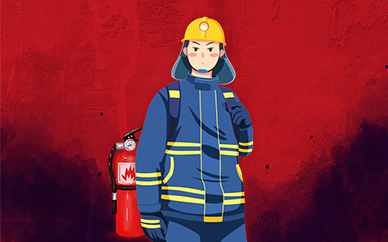
全球观点:雷军入选最受欢迎知识主播!微信公布视频号年度数据
热门 -

天天速看:工商银行兔年金条100g价格今天多少一克(2023年01月17日)
热门 -

世界微速讯:如何在Github上创建一个新仓库
热门 -

2023重庆梁平春节花灯民俗节烟花表演是哪一天?
热门 -

【世界速看料】2023年度专业技术人员职业资格考试计划发布
热门 -

全球快讯:天然气消费、进口双“降级”,行业投资信心拐点将至?
热门 -

4月10日起 成都这类车辆将实施限行管控措施|天天热文
热门 -

黄瓜种植时间和方法 水果黄瓜种植时间和种植方法 全球快讯
热门 -

世界看点:Web3 基金会公布第 16 批 Grant 资助名单!
热门 -

小金额民事诉讼程序有哪些流程
热门 -

全球看热讯:震惊!浙江某男子发现鸿蒙系统若干秘密
热门 -

北极星太阳能光伏网5月2光伏要闻回顾
热门 -

天晟新材:公司目前在新能源汽车上的配套产品主要是多款零部件产品|全球播资讯
热门 -

醉心剪纸 喜迎兔年
热门 -
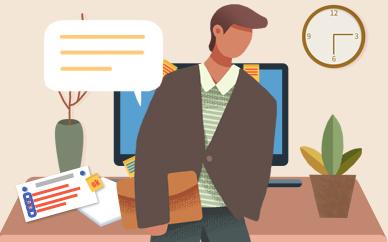
美军要在冲绳建濒海作战团 欲用机动导弹封锁海洋-天天时讯
热门 -

环球快看:北京CBD、亮马河、14号线商业带辐射带动周边商圈迎春节
热门 -

又现降费“吸金” 基金瞄准债市短期机会
热门 -

南阳宛城区法院党组书记、院长赵曙君春节前夕走访慰问帮扶户|焦点要闻
热门 -

天天热文:双飞股份1月12日快速上涨
热门 -

疫情三年,手机市场出现哪些“后遗症”?
热门 -
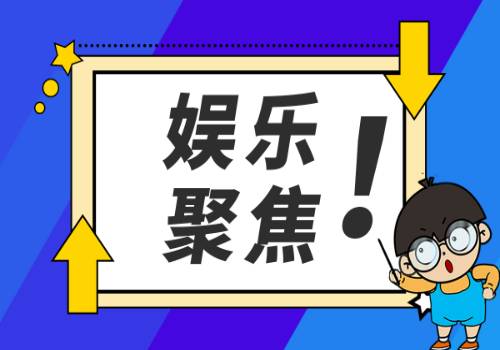
环球短讯!朔州市怀仁市人民政府办理违章交通在网上查
热门 -

【天天播资讯】傲农生物最新公告:非公开发行股票申请获证监会受理
热门 -

报道:友讯达:公司目前没有产品在储能领域应用
热门 -

蒙娜丽莎1月11日盘中涨幅达5%
热门 -

速看:“私自”修改赎回规则?百亿私募回应
热门 -

五方光电:魏蕾减持计划实施完毕 期间减持公司股份473万股
热门 -

美思德(603041)1月10日主力资金净卖出50.71万元
热门 -

【天天新要闻】大华股份董秘回复:若相关事项有后续更新进展,我们将依照相关法律法规的规定,及时予以披露
热门 -

天天微速讯:物业服务合同抗辩权是什么
热门 -
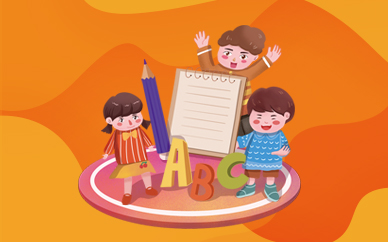
23江西交投SCP001票面利率为2.0600%
热门 -
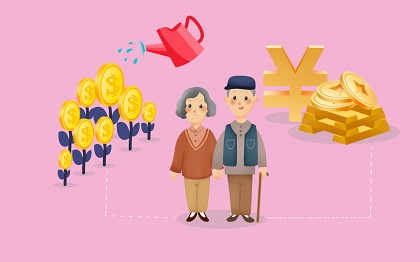
满易贷逾期2000会影响征信吗
热门 -

当前消息!有钱花借款逾期25年多久会上征信
热门 -

今日快看!历史最低价!特斯拉大降价意欲何为?
热门 -

6连败!8.4秒险丢3球,快船心不在焉,末节崩盘恐被湖人赶超 世界时快讯
热门 -

岳云鹏《满江红》角色揭晓,评论区画风集体跑偏,网友直呼要出戏|世界快报
热门 -

重庆落地首笔跨省跨区“绿电”交易 天天速看
热门 -

南京市浦口区交通违章要怎么处理?|快看点
热门 -

每经热评丨让股价大跌的再融资 不是券商高质量发展新路-头条焦点
热门 -

卡卡贷网贷逾期36年延迟还款会上征信吗 天天视讯
热门 -

两家医院获批!国家骨科医学中心落地
热门 -

速读:美股异动 | 埃克森美孚涨1% 第四季度利润增长强劲 将创下年度纪录
热门 -

世界最资讯丨拟收购酒店等6项资产 国旅联合停牌筹划重大资产重组
热门 -

热文:2023外地车到杭州错峰限行最新消息(地面道路+快速路)
热门 -

天津自贸区板块1月5日涨1.21%,卓朗科技领涨,主力资金净流出1067.91万元
热门 -

郑州两家重点上市后备企业获郑州银行政策性科创金融贷款
热门 -

索尼PS5无障碍手柄发布:圆盘设计 造型很酷_世界观焦点
热门 -

哈里王子称脱离王室是他的决定,为梅根承受的压力感到愤怒和愧疚 全球今日讯
热门 -

每日快报!北京金融法院“1号案”一审宣判!构成虚假陈述,兴业银行被判担责10%
热门 -

环球今日报丨2022年终总结:不再用“拼命”来应对极度的不安全感
热门 -

3斤半的鹅绒被重吗? 快报
热门 -

我国多地将暖到破纪录 华北黄淮等局地有重度霾
热门 -

焦点观察:穿越1.9亿年的“恐龙”来看你——云南大规模抢救性发掘恐龙化石纪实
热门 -

《隐秘而伟大》:无论在外受了多少委屈,但你始终都是父母的孩子
热门 -

2023年绵阳女兵征兵报名应征流程一览 环球新动态
热门 -
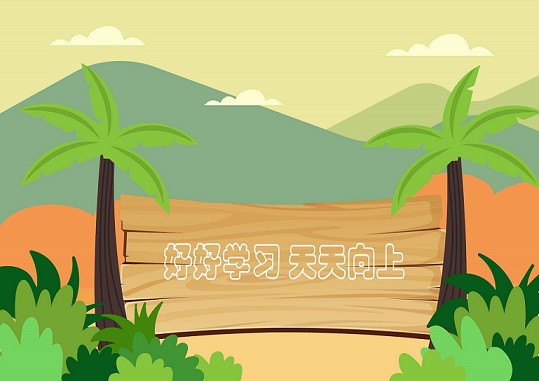
世纪华通:公司一直将海外市场视为重点方向之一,并不断推出新颖玩法,且覆盖丰富品类的游戏产品
热门 -

微信网名男士简单干净阳光 干净阳光简单的男孩微信昵称汇总 短讯
热门 -

奉献爱心庆元旦 无偿献血迎新年 当前快看
热门 -

【环球报资讯】绿科科技国际(00195.HK):以320万港元出售绿科科技国际发展全部已发行股本
热门 -

看,正加速度的中国!|世界看热讯
热门 -

逐利的刘涛,跨界赚钱的那英,最终都为钱活成了自己最讨厌的样子
热门 -

回顾2022年汽车和出行领域的投资概况-天天百事通
热门 -

环球时讯:月度复盘|2022年12月份,划上句点
热门 -

全方位扎实推进廉洁文化建设
热门 -

《癸卯年》邮票 又见卯兔
热门 -

2023绵阳元旦节国省干道交通出行提醒-环球今热点
热门 -

12月30-1月1日南昌公园街道四价HPV疫苗摇号通知
热门 -

科创债提速推进,70余家企业融资近1200亿 全球视讯
热门 -

广汽集团(02238.HK)预计2022年产销同比分别增长约15%及12.1% 利税总额同比增长约13.2% 主要经营指标实现快速增长
热门 -

2023年广西民族博物馆元旦活动时间+内容
热门 -

当前头条:林黛玉适合什么岗位
热门 -

世界消息!广州越秀区广东省人民医院核酸预约指南
热门 -

碳博士控股(TANH.US)2022年H1营收同比增31%至2700万美元 净收入210万美元
热门 -

西部大开发板块12月28日跌0.49%,*ST西源领跌,主力资金净流入1271.79万元
热门 -

全球视点!感激那些看不起我的人的句子精选266句
热门 -

重磅!再次火箭发射,钢价要涨到4200?-世界动态
热门 -

最大CLIP!LAION发布CLIP的扩增定律
热门 -

国家医保局:1至10月全国基本医疗保险参保率稳定在95%以上
热门 -

伟星新材(002372)568.5万股限售股将于12月29日解禁上市,占总股本0.36%
热门 -

当前看点!康弘药业荣获第五届社会责任大会两项大奖
热门 -

羊没羊,好像也没那么重要了!_世界聚看点
热门 -

和龙市八家子镇积极开展野生动植物保护宣传活动
热门 -

三旺通信: 上海荣正企业咨询服务(集团)股份有限公司关于深圳市三旺通信股份有限公司2022年限制性股票激励计划(草案)之独立财务顾问报告|环球新消息
热门 -

天天微动态丨我国最大整装气田年产天然气突破300亿立方米
热门 -

人民银行开展2160亿元逆回购操作 公开市场实现净投放2070亿元
热门 -

「明日天气预报」开封2022年12月26日天气预报,晴转多云,北风转西南风<3级
热门 -

环球动态:“元宇宙+出版”,会带来什么样的风景?
热门 -

莱尔科技(688683)12月23日主力资金净卖出27.35万元-天天通讯
热门 -

在深圳房产买卖合同想解除怎么办
热门 -

周冠宇携手汇丰中国再续F1新篇章
热门 -

青春不过几场世界杯
热门 -

今日热门!中航机电股东户数增加1.49%,户均持股28.16万元
热门 -

周口区借贷合同纠纷律师收费标准最新
热门 -

今日关注:中大纺织商圈复市前后:笑迎天下客 商家赶货忙
热门 -

谢霆锋成《浪姐2》核心人物,他和哪些姐姐有关系?
热门 -

医渡科技中期收入和毛利率齐下滑 现金需求主要靠融资来满足_即时看
热门
Copyright © 2015-2022 每日餐饮网版权所有 备案号:浙ICP备2022016517号-15 联系邮箱:5 146 761 13 @qq.com


